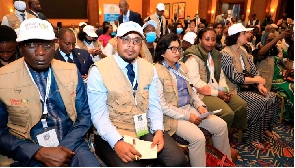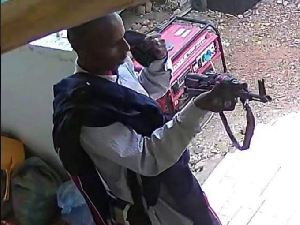The Commonwealth Observer Group for last year's Kenyan General Election wants candidates convicted for corruption, electoral malpractice or unethical conduct locked out of participating in future elections.
The group, in a report on Kenya’s polls, has also called for the prompt conclusion of appeal cases facing aspirants in order not to interfere with election preparation.
“The conviction of any candidate for corruption, electoral malpractice or unethical conduct contrary to national values should lead to automatic disqualification of such a candidate as per the law. In order to satisfy the public interest in certainty, any conviction at the time an election is called should preclude a person from standing in that election,” reads the report.
In the run up to the August 09, 2022 polls, appeal cases for some aspirants such as former Nairobi Governor Mike Sonko dragged on, with the electoral commission complaining that this was affecting their timelines in preparing ballot papers.
The commission eventually barred Sonko from contesting the Mombasa gubernatorial seat following his impeachment by the Senate as Nairobi governor.
Poll financing
The commonwealth group has called for implementation of the Elections Campaign Financing Act in the 2027 general elections to limit the amount of money spent by candidates.
“Although there is campaign finance legislation, the Campaign Finance Act is not in force and there are no regulations that cap the amount that any coalition, political party or candidate can spend on the campaign. This leads to significant and often unreported campaign spending,” reads the report.
The group has cautioned the commission over its expenditure, especially on elections, saying it should undertake a comparison of election expenditures in comparative countries to identify any cost-saving measures for future elections.
Although the group, led by former Prime Minister of Jamaica Bruce Golding, said the election was credible, transparent, inclusive and largely peaceful, it raised concerns on several issues such as delays in the IEBC receiving funding; failure to publish the voter register to allow for inspection and errors in the printing of ballots.
“The group’s overall assessment was that the election, as a whole, was credible, transparent and inclusive. However, all electoral processes can be further strengthened,” reads the report.
Kenya’s Ethics and Anti-Corruption Commission called for blocking of 241 aspirants from participating in the elections over integrity issues. Majority of them, however, were cleared by the electoral commission.
In the run up to the August polls, Kenyan MPs rejected the Elections Campaign Financing Regulations that were published by the electoral commission saying the agency did not present the regulations for approval by parliament before publication.
The regulations required disclosure of sources of funds and set spending ceilings. They were seen as a move by the commission to level the playing field by ensuring candidates with deep pockets do not have undue advantage over their competitors.
The IEBC is required under Section 5 of the Election Campaign Financing Act 2013 to make rules, which must be submitted to Parliament for approval at least 12 months before the General Election.
The nullified rules had limited spending by candidates for governor, women representative and senator seats to between Ksh21.9 million ($15,000) and Ksh117.3 million ($70,000), depending on the size and population of the devolved units.
The group in the report also called on IEBC to review its chain of custody procedures relating to the printing of ballots to avoid the types of errors that led to the postponement of elections in some areas, including Kakamega and Mombasa.
“The IEBC should also ensure the voter register is published for an adequate amount of time in advance of the election to allow for inspection and objections,” reads the report.
In order to allow IEBC to prepare adequately for elections, the group wants the exchequer to release money to the commission early to fulfil its mandate within the appropriate timelines.
The Group was deployed in 14 teams from August 7-9 to Nairobi (including Kiambu), Central (Nyeri, Kitui and Meru), Coast (Mombasa), Northeastern (Machakos), Nyanza (Kisumu, Kisii), Rift Valley (Nakuru, Eldoret, Kitale and West Pokot) and Western Region (Kakamega, Vihiga, Bungoma and Busia).
Africa News of Monday, 14 August 2023
Source: theeastafrican.co.ke













